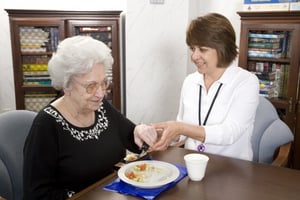A parent is getting more forgetful. An older relative has fallen several times in the last few...
Change of Seasons: How to Stay Safe and Healthy
Fall is here and winter is around the corner. Weather changes present challenges for seniors to overcome to stay healthy, active and independent. It is important for seniors and their caregivers to prepare for the change of seasons using the following health and safety tips.
If you are 65 years plus or have a medical condition such as diabetes, heart disease, asthma, or kidney disease you are at greater risk for catching the flu this season.
Signs of the flu can include:
- Cough or runny and stuffy nose
- Feeling weak or tired more than usual
- Fever or sore throat
- Having body aches or the chills
The Centers for Disease Control and Prevention recommends the following to prevent the flu:
- Flu vaccination
- Distance from others who are sick
- Use medications recommended from your doctor
- Wash your hands often
To stay healthy during the winter time, it is important to make changes in your daily living.
1. Staying warm is imperative for seniors. Avoid being in the cold for long periods of time, and if outdoors wear appropriate clothing. It is important to keep your palms, ears, feet, head and neck covered as heat escapes our body through these areas.
2. Proactive self-care is key. Eating well and exercising helps your immune system stay healthy. During winter months, our bodies need more nutrition and vitamins to keep it running at top condition. Integrating exercise into your weekly schedule can help rejuvenate your body.
3. Take care of your body. While eating right and being active are vital to your health during the cold months, it is equally important to hydrate yourself and get plenty of rest.
4. Precautions are needed to prevent slipping or falling outside. With leaves or snow on the ground, it is important to have help with raking, shoveling and applying salt to ice. In the event of a fall, using a medical alert system will allow you to contact emergency officials in case of injury.
5. Ensure appliances are in good condition. Winter appliances, as stoves and heaters, should be checked before the cold months to ensure they are able to keep your home heated. Replace batteries in smoke detectors and carbon monoxide detectors for home safety.
Cold weather and the decreased sunlight are cited as causes for the winter blues, depression and lack of energy for those affected. Keeping your mind active and staying social can keep moods of lethargy. Homecare options, such as companionship, are available to provide senior with assistance and interaction with others.
Call VNA of Ohio Today
Learn more about VNA of Ohio homecare services or call us today at 1-877-698-6264.



